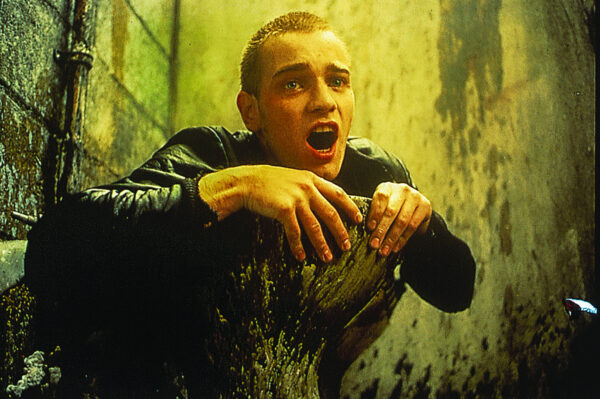Our Screen Savers
Producer and author, Jonathan Sothcott finds the British film industry in rude health

By Jonathan Sothcott
October 9 2024
At the Oscars in 1982, elated Chariots of Fire screenwriter Colin Welland, newly acquired gold statue in hand, offered a peculiarly British admonition to the glamorous audience: “I’d like to finish with a word of warning. You may have started something — the British are coming.” Four decades later, we might not quite be there yet, but recently our prospects are looking brighter than they have for a long time. British cinema hasn’t been as clearly defined as that of our friends on the Continent since the Sixties, when kitchen sink drama, Carry On innuendo and Hammer Horror were seen as being as English as tea and crumpets. The collapse of American studio investment following the Vietnam War in the Seventies, as well as the slow decline of Britain’s Eady Levy (a subsidy established in the late Fifties for a quota of home-made movies) sent shockwaves through the British film industry of the day, when for every Ryan’s Daughter or Quadrophenia there was at least one Confessions of a Window Cleaner and usually two, while the few real indigenous movie stars packed their bags and fled Dennis Healy’s punitive tax regime for sunnier climes. The Eighties was even tougher: Chariots of Fire offered a brief glimmer of hope; the Merchant Ivory films became Britain’s new cinematic identity; and the emergence of Channel 4 just about kept the indies going, but they were dark days indeed, with production at an all-time low.

At the end of the Nineties, directors Danny Boyle and Guy Ritchie became the poster boys of the Cool Britannia film revolution, when DVD boomed and everything was achingly hip. Lads mags, The Spice Girls and a burgeoning internet were a perfect backdrop for sweary, high-octane movies laden with testosterone and a very different social commentary to that which audiences were used to. Trainspotting and Lock, Stock & Two Smoking Barrels both stand the test of time, and both filmmakers — as well as many of their contemporaries — now command huge budget shows for the streamers. For many of us, the collapse of physical media and its replacement by behemoth corporate-controlled streaming services such as Netflix and Amazon has compromised our independence, and now the sudden rise of Artificial Intelligence has made many question whether cinema has a future at all. But we would do well to remember the sudden appearance of Television in the Fifties, when it was decreed that nobody would leave their home and movie stars would become obsolete. Great storytelling for the big screen survived that — and in many ways was bolstered by it — and it will survive these latest technological trends, too.
A recent study for the American AVOD platform TUBI (essentially TV with commercials, to you and me — everything is cyclical) shows that the elusive Gen Z audience is looking for “original diverse content” as opposed to the endless franchise tentpoles. Fatigue has set in for the gargantuan Hollywood IP properties. Novelty DVD rental shops are starting to pop up. Perhaps Blu-ray will find a niche akin to vinyl, with people seeing the wisdom in owning physical copies of classic films, as the streamers are forced to drop titles from their platforms as rights issues become increasingly problematic, forcing them to break their promise that digital media was forever. Of course the UK has always been acclaimed for its crews and facilities — the best in the world we are often told, quite rightly — and the long list of Hollywood blockbusters that have kept Elstree and Pinewood studios going, from the Star Wars franchise to Indiana Jones, attests to this.
“It feels like we’re having something of a moment and now feels a positive time for a little chest-beating about one of our greatest exploits”
At the dawn of my career towards the end of the Noughties, I made a fairly terrible vampires vs gangsters film (‘from dusk till Dalston’ if you will), redeemed largely by a young Director of Photography with an incredible eye. His name is James Friend and in 2023 he won the Oscar for Best Cinematography for All Quiet on the Western Front. I have no doubt he misses those long nights in a Basildon warehouse waiting for fang fittings as little as I do. Exceptional talent is endemic in the British independent film sector. Opportunity is less so. But things are changing — those of us who have been doing it for a long time are now more in control of the distribution than we were a decade ago. Hollywood accounting is on the wane. People will moan that the UK is becoming a service outpost for the big studio movies, block-booking talent and facilities, but until we can provide a realistic domestic alternative, better to keep things moving than a return to the doldrums of the Eighties.
Left; Chariots of Fire (1981), centre top; A Room With a View (1985), centre below; Oscar winner James Friend - DP for All Quiet... and right; Oscar winner Colin Welland, Chariots’ screenwriter.
The most significant development of all, however, is the Government’s March 2024 increase of the UK Film Producer’s Tax Credit from around 20% to a mammoth 40%, which puts the UK at the top of the global map in terms of incentives and finally feels like a suitable replacement for the Eady Levy. This tax credit, for which projects need to pass a pretty fair cultural test, is claimed by the film production company as a corporation tax rebate and is free of the usual complexities associated with R&D credits. Add the quiet return of the Enterprise Investment Scheme for UK film production companies, under which qualifying investors can write off up to 30% of their investment against their income tax, and there has never been a better time to make independent British films. I’m currently making my third film in nine months — an output level high for a decade. It isn’t often that you feel the zeitgeist shift positively in show business, but it feels like we’re having something of a moment and now feels like a positive time for a little chest-beating about one of our greatest exploits — British Film.
Jonathan Sothcott is Chairman of Shogun Films and has produced more than 40 films, including We Still Kill the Old Way.
